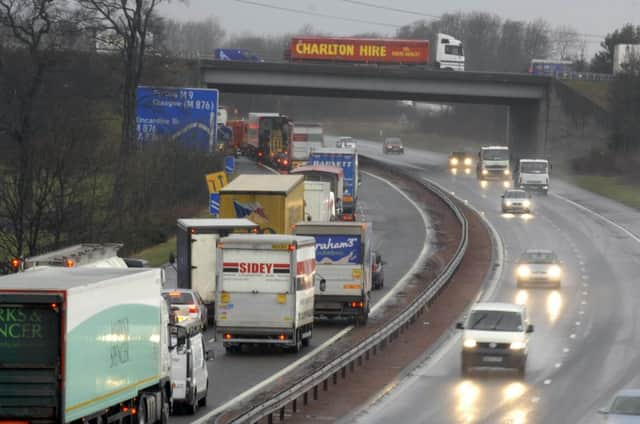Alastair Dalton: A9 debate has a long way to run


Then there’s the reckless overtaking manoeuvres by drivers – who are the real “killers”, not the road. Now it’s the installation of average speed cameras which has sparked hysteria.
I reported on the launch of such cameras on the A77 – another alleged “killer road” – in 2005 and don’t recall any opposition then or since. The 29-mile Ayrshire system, has significantly cut both speeding and casualties.
Advertisement
Hide AdAdvertisement
Hide AdIn fact, average speed cameras, which measure the average speed of a vehicle over a set distance, have now become a familiar sight in enforcing lower speeds through major roadworks, such as on the A8, A80 and A90. I don’t remember protests against them either.
However, with the A9 system, it’s as if the cameras are being visited on Scotland for the first time, and opponents claim they will make the situation much worse.
Liberal Democrat Highlands MP (and Chief Secretary to the Treasury) Danny Alexander is spearheading the campaign against the cameras, along with a protest group, A9 Average Speed Cameras Are Not the Answer.
However, Mr Alexander’s attempts to establish an anti-camera coalition, the Highland Infrastructure Forum, appeared to have backfired at its first meeting this month when independent MSPs Jean Urquhart and John Finnie quit after being wrongly labelled as antis.
The cameras’ critics argue that speed isn’t the main problem on single-carriageway sections of the A9, and the cameras won’t tackle the problem of drivers frustrated at slow traffic making dangerous overtaking moves.
The Scottish Government announced the introduction of the cameras last summer. Arguably, they had to be seen to be doing something after a spate of fatal crashes, and with dualling not due to be finished for more than a decade.
But the cameras’ opponents seem to be on a hiding to nothing. Confusion has reigned over whether those cameras already installed are in use – they don’t become operational until October – and more could be done to highlight that.
But Scottish Government figures already indicate that the mere presence of the cameras on the A9 has already deterred speeding. And when they go live, the lorry speed limit on single carriageway sections will be raised from 40mph to 50mph as an experiment.
Perhaps, though, the strongest indication that there is little mileage in this campaign is Labour’s near-silence on the matter. The party says it “doesn’t have a specific issue” with the cameras.